ReConnect/ReCollect:
Reparative Connections to Philippine Collections at the University of Michigan
Maia Cruz Palileo, Amigo by Day, 2019. Private Collection, Bedford, New York. Courtesy of the artist and Monique Meloche Gallery, Chicago.
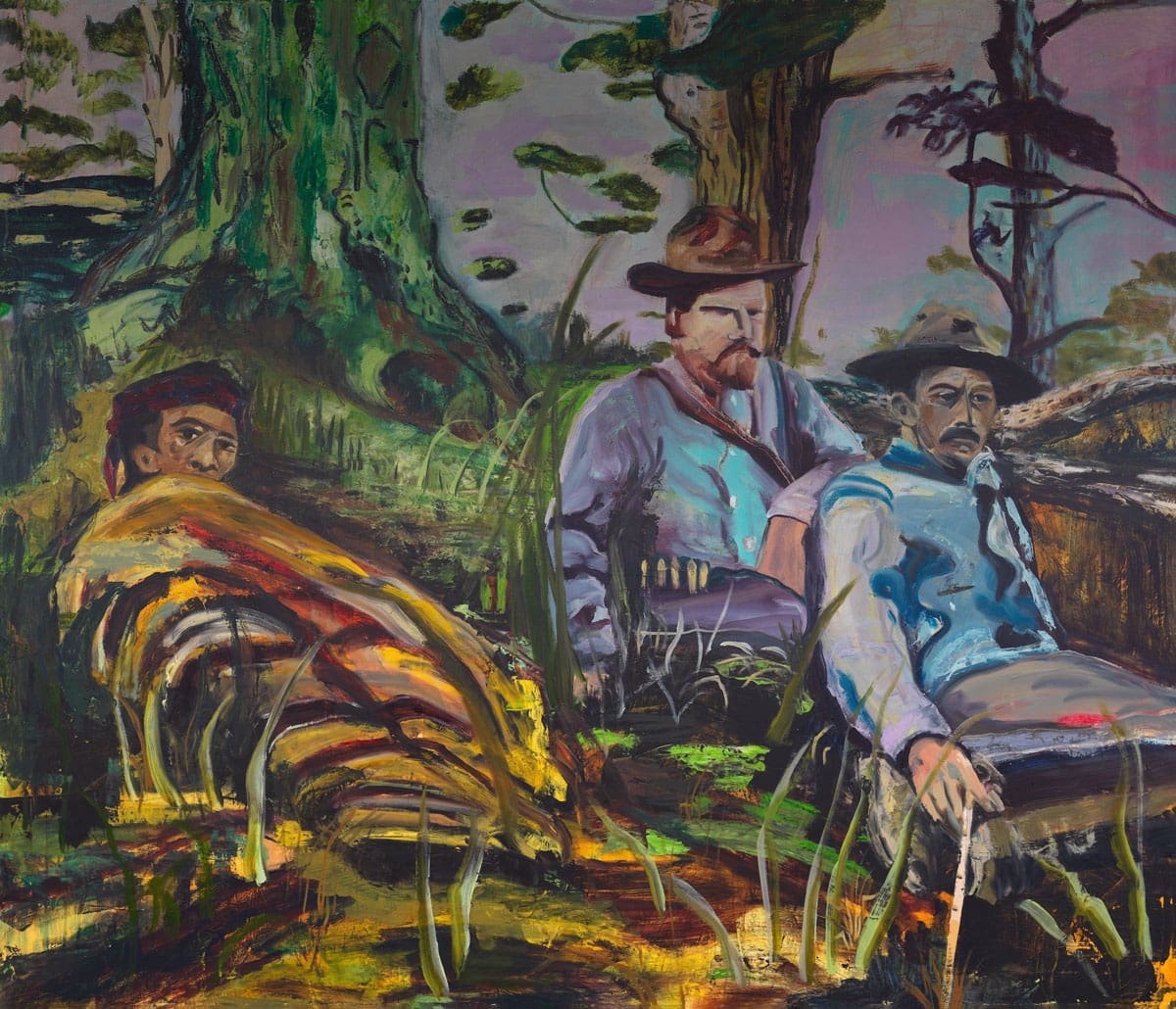
ReConnect/ReCollect:
Reparative Connections to Philippine Collections at the University of Michigan
Maia Cruz Palileo, Amigo by Day, 2019. Private Collection, Bedford, New York. Courtesy of the artist and Monique Meloche Gallery, Chicago.
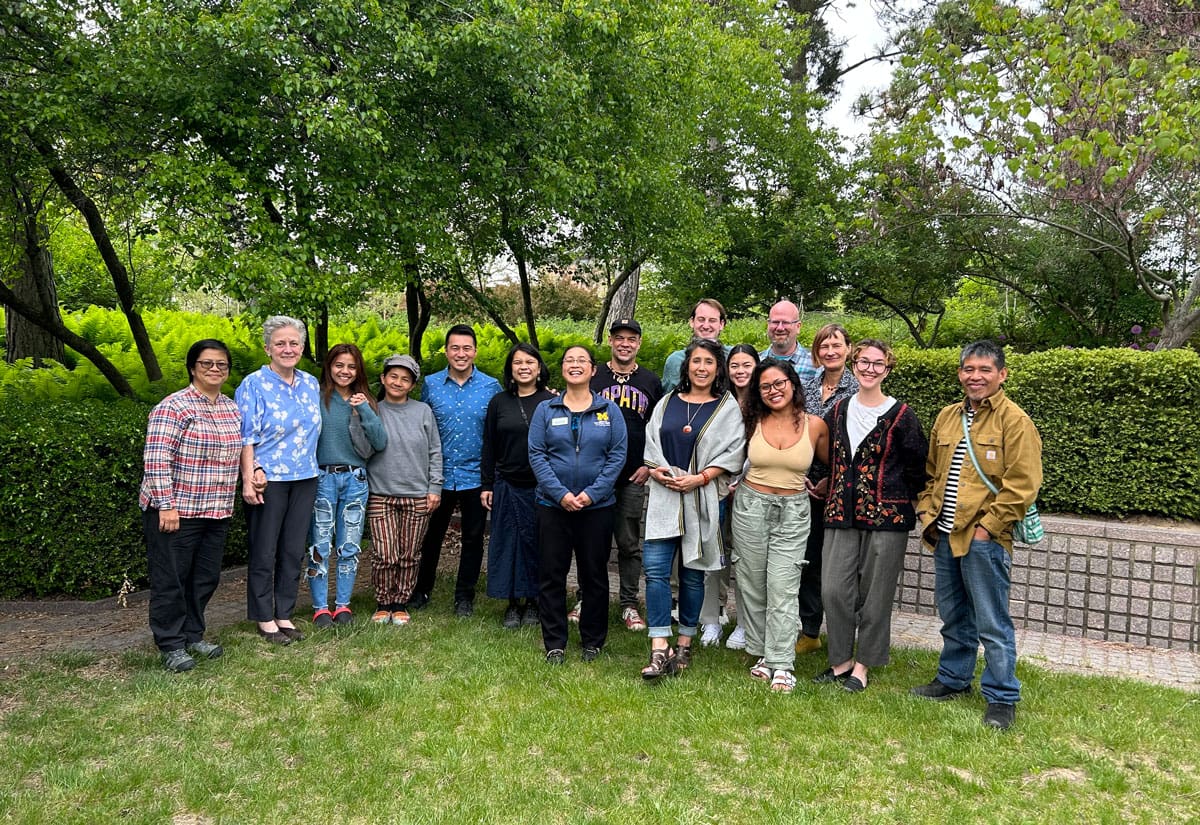
Artists and culture bearers from the Philippines in Ann Arbor with the ReConnect/ReCollect team, 2023.
About Us
ReConnect/ReCollect is a diverse group of faculty, librarians, archivists, curators, collections managers, students, and members of the Filipino and Filipino American community.
We are committed to developing models for culturally-responsive and historically-minded stewardship of the Philippine collections at the University of Michigan.
Film
What happens when you open Philippine collections to non-academics and people of Filipino descent?
Filipino American filmmaker Orlando de Guzman followed three groups of artists and culture bearers as they engaged with the collections, and followed the collections as they were reunited with Indigenous communities in the Philippines.
Watch Orlando’s film below.
Points of Origin, a documentary film by Orlando de Guzman
Our Vision
Reparative Interventions
The University of Michigan’s role in U.S. colonial expansion resulted in the accumulation of one of the largest Philippine cultural and natural history collections in North America.
Our two-year project, generously supported by the Humanities Collaboratory, responds to the profound challenge of facilitating meaningful connections between colonial collections and the descendants of communities they document. We aim to reconceptualize cultural heritage work from the perspective of relationships, building where bonds do not exist or repairing when trust has been broken.
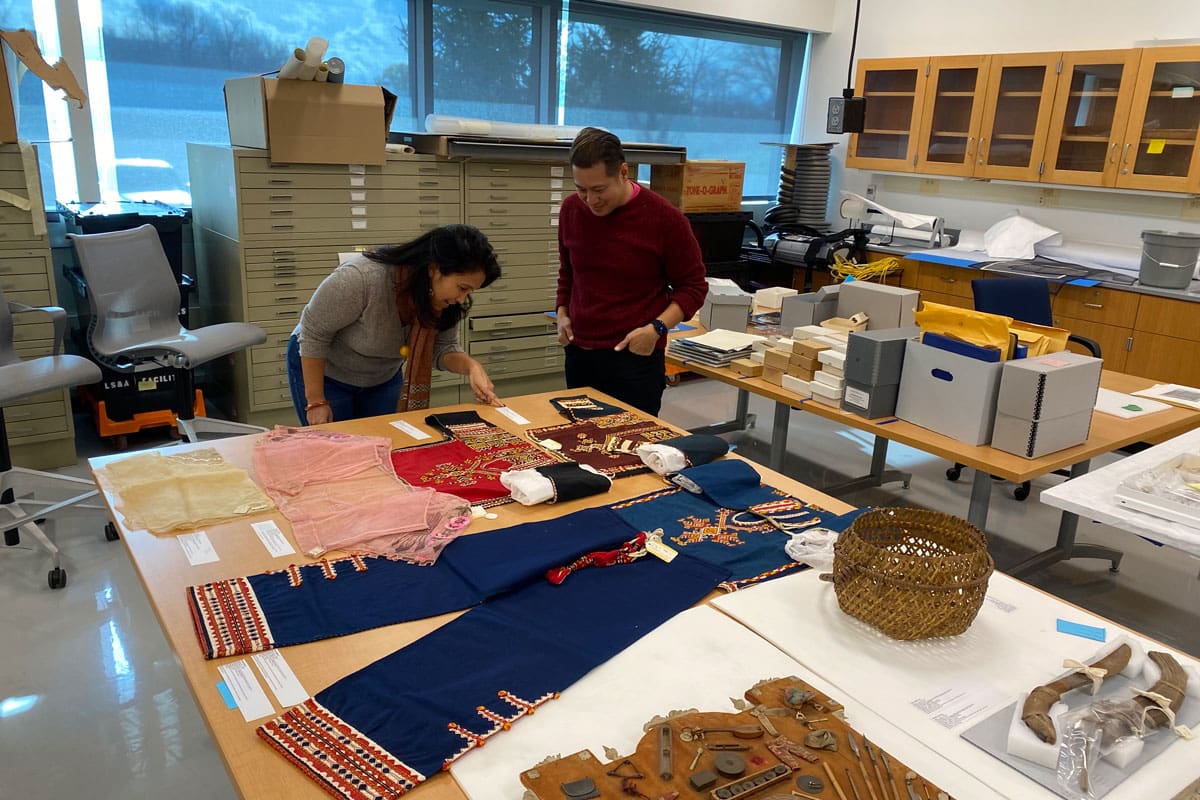
Deirdre de la Cruz and Ricky Punzalan, Co-PIs of ReConnect/ReCollect, examine textiles in the University of Michigan Museum of Anthropological Archaeology, 2022.
Reparative Curation

We performed an inventory of Philippine collections on campus that included discovery of unprocessed materials, the diagnosis of harm at all levels (e.g., acquisition, representation, contextualization, stewardship, and utilization), and the development of recommendations for repair (e.g., through the revision of item-level description, finding aids, access systems, etc.).This included creating a glossary of harmful terminologies often present in collections and finding aids and a coding visualization tool that can assist with analyzing harm in finding aids.
Reparative Connections to Community

A central goal of this project has been to reconnect the University of Michigan’s Philippine collections with Indigenous and Filipino and Filipino American communities, artists and culture bearers. To this end we piloted three artist-in-residencies in 2022 and 2023, and a series of events for communities in Southeast Michigan. We also shared our collections with Indigenous communities through our August 2023 visit to the Philippines. These initiatives deepened our understanding of the value and meaning of the U-M’s collections for non-academics, especially those from the Philippines and its diaspora.
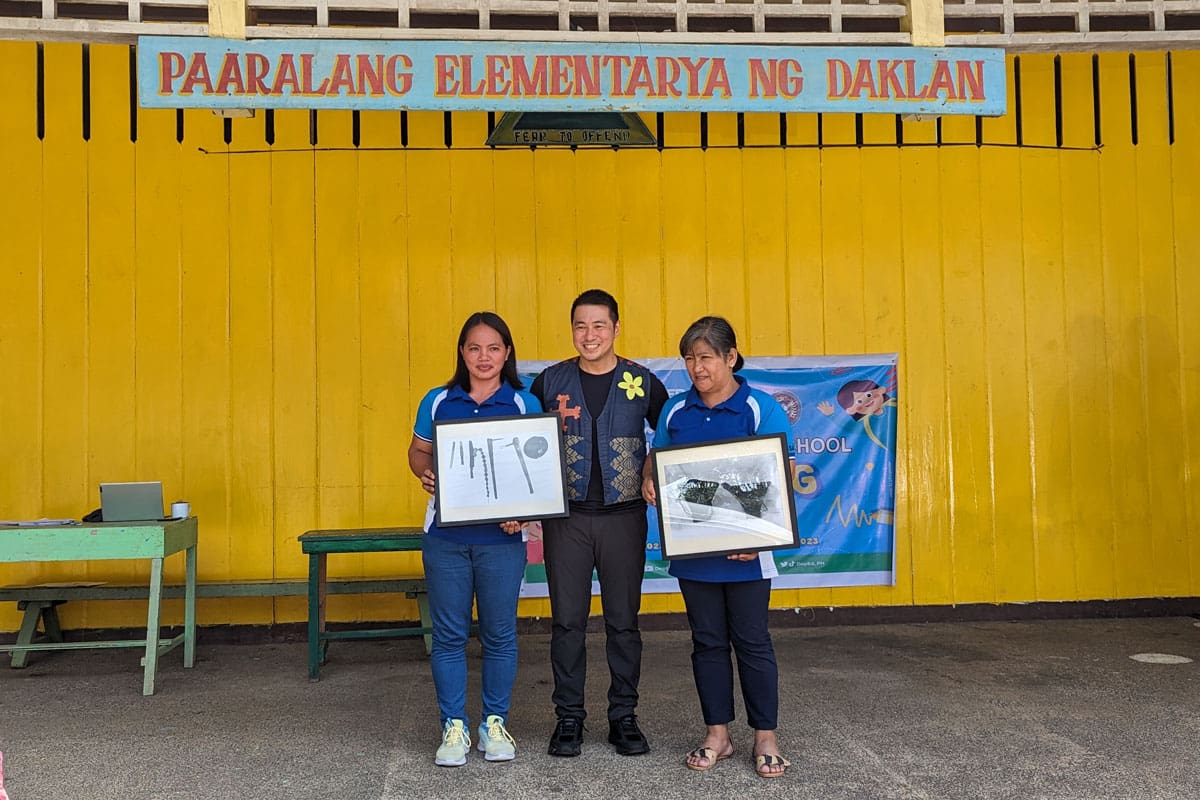

Ricky Punzalan, Co-PI of ReConnect/ReCollect, with teachers from Daklan Elementary School, Bokod, Province of Benguet. Photographs of cultural belongings were given to Daklan Elementary for their cultural museum, the Tawid Center. Photo by Jim Moss.
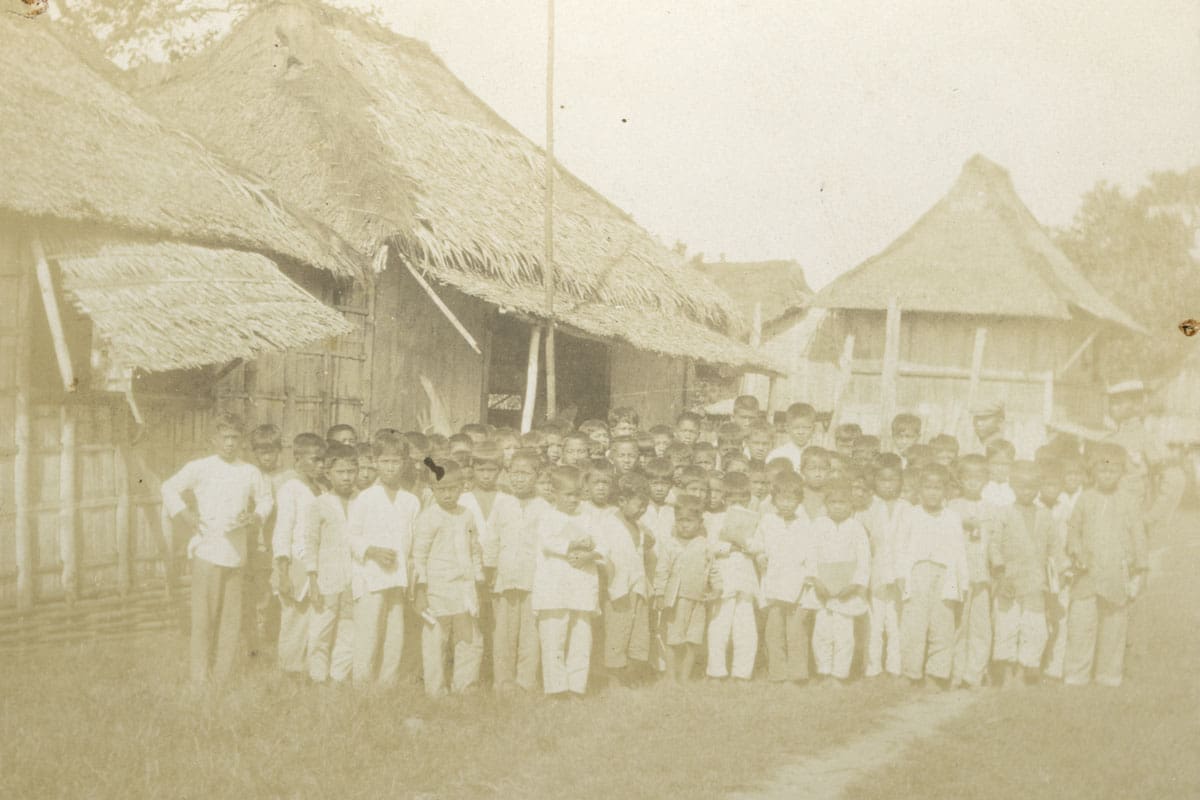
Boys School, Frederick G. Behner Collection, Bentley Historical Library.

Reparative Scholarship
Our multi-platform toolkit includes documentation of our project, recommended protocols for harm assessment and repair (including a special research initiative dedicated to the human remains in U-M’s Philippine collections), an extensive bibliography, and suggested pedagogical strategies and syllabi for teaching about US empire using decolonial approaches and materials from the imperial archive.
Our Toolkit
As part of our work, we created a dynamic hub of adaptable and practical resources designed and curated by ReConnect/ReCollect: Reparative Connections to Philippine Collections to develop culturally-responsive and historically-minded approaches to the stewardship of the University of Michigan’s Philippine collections.
The Philippine Collections
The sizable Philippine collections at the University of Michigan, amassed from the late nineteenth century to the middle of the twentieth, underscore this institution’s role in U.S. colonial expansion.
Michigan faculty, students, and alumni went to the Philippines to teach, conduct field research, establish business ventures, and participate in colonial administration. These activities resulted in the accumulation of one of the largest Philippine collections in North America.
Scattered across several archives, libraries, and research museums, the Philippine Collections consist of roughly 20,000 items including manuscript collections, published works, maps and atlases, art, photographs, ethnographic objects, human remains, and thousands of animal and plant specimens from the Philippine Islands.
Collected in the context of U.S. colonization, the University of Michigan’s Philippine materials are not only critical sources for academic scholars who study the history of U.S. imperialism, they are also foundational to several of the U-M’s departments and institutions. In decentering the legacies of colonial collections and representation, this project reaches beyond an academic audience to mitigate the harm of traditional curation, representation, and scholarship that has largely ignored community voices and perspectives, glorified colonial actors, and almost exclusively catered to academic researchers.
20,000
Collected Items
300+
Manuscript Collections
5,000+
Historical Images
